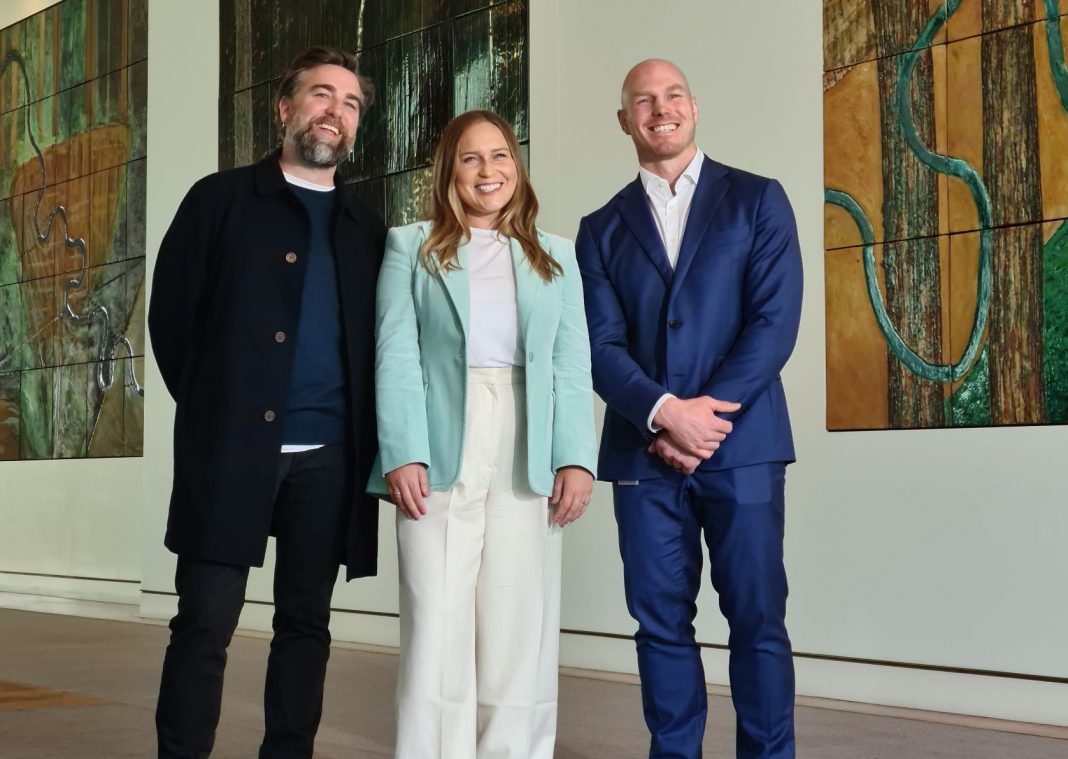Prime Minister Anthony Albanese isn’t the only music-lover on the hill (remember him sculling a beer at Gang of Youths concert), David Pocock is also a fan and today the Senate debated his Bill to overturn archaic copyright legislation that shortchanges musicians when their songs are played on radio.
Adding a bit of street cred to all the grey suits in parliament were Aussie musicians Josh Pyke and Jack River, who literally sing for their supper. They want to know why commercial radio has a cap set at 1 per cent of gross earnings for an artist’s copyright. For ABC radio, the cap is. 0.5 cents per head of population.
This law has been around for 55 years and Senator Pocock wants it removed, allowing free and fair negotiation for musicians.
“A similar cap does not exist anywhere else in copyright laws,” Senator Pocock said. “Songwriters are often paid bigger royalties than the artists.”
In the last financial year, commercial radio (260 stations) paid about $4.4 million in royalties to artists and rights holders – only 0.4 per cent of their gross earnings. The ABC paid $125,000 – less than their total travel budget for the year.
When musician Josh Pyke isn’t performing, he’s chairing the Phonographic Performance Company of Australia, the organisation that collects royalties for recorded work.
“Currently the cap is at 1 per cent and we’re not even at the cap – PPCA collects 0.4 per cent,” he said.
“Even a 0.1 per cent rise would increase that by $1 million so that would be $1 million flowing into the PPCA fund, which gets distributed out to the rights holders. It would create a meaningful change to artists.”
Jack River, who also has an eight-month-old baby with her on the road (and no paid maternity leave), said musicians simply want to be free to negotiate their value with radio.
“Commercial radio in Australia have profits of around $700 million a year. Payouts to sound recordings are around $3.8 million a year. So that gives a bit of context to the kind of shift we’re playing with here,” she said.
Pyke said the royalties rate in other countries was capped at 3.5 to 4 per cent.
“Every artist is a small business and an entrepreneur, and I would dare say an inventor, we’re inventing a new product every time we write a song and we own the copyright to that,” he said. “We are self-employed, we don’t get sick pay …. every little bit of income stream that we can negotiate for ourselves to get a fair rate will help us to create art, which does have an enormous value.”
Pyke remembers the first time he heard his music played on the radio.
“I remember driving home from rehearsal and hearing [Triple J host] Richard Kingsmill put on our song and it was absolutely thrilling,” he said.
“I thought, this is it, I’ve made it. It took me another 10 years to turn it into a full-time career, but it was pivotal. I’ve been a huge beneficiary of the relationship with radio and I want that to continue but I do believe we have the right to negotiate fairly.”



